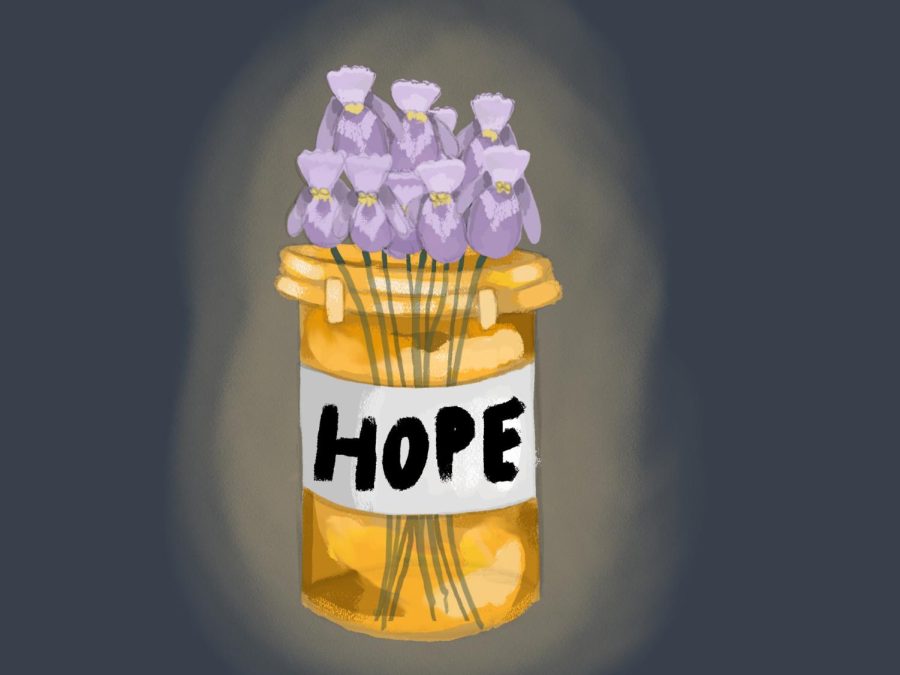You need medicine to make you okay? That’s okay.
There’s no shame in needing medication for mental illness.
Medication for mental health is still stigmatized, but it’s okay if you need it.
Our society has come a long from the 1950s, the ’70s, and even the ’90s regarding mental health. Different disorders are understood far better, treatment is more advanced, and the attitude regarding those with mental health struggles has become more empathetic. However, despite all of our progress, our society still lags behind in one regard: medication for mental health purposes is still greatly stigmatized.
An argument against medication is that we didn’t use it to consume it. Sure, let’s go back to drilling holes in people’s heads to let the demons out. People didn’t use Advil back before 1961 or aspirin before 1897, so should they not use it now? What’s the difference between a physical ailment and a mental illness? Medication for a mental illness can be just as life-saving as medication for a physical illness. And even if people in the past didn’t need it– which I would argue that they did, considering people still committed suicide back then– people in the present do. Don’t deny someone a life-saving and life-changing drug just because people in the past didn’t use it.
Another stigmatization of medication for mental health lies in the belief that those who take it are weak. This is absolutely not the case. We are not made to be able to handle these chemical imbalances in the brain. Imagine being so incredibly sad, hopeless, and unmotivated that you can hardly get out of bed anymore, that it feels as if you’re literally covered in weights, that you have to gather up the courage to move an inch. Imagine being tailed by constant guilt. Or for anxiety, imagine being constantly on edge, feeling like you have to tear off your skin and escape, having your chest in a tight knot. Or for some versions of bipolar, imagine how exhausting it is to swing from the best joy you’ve ever experienced– a high that makes even the normal feel sad– to the worst depression you would have struggled to even imagine, to a depression that strips you of all hope and motivation. These people are not weak for not wanting to deal with this. For some people, not being on medication simply isn’t an option because of how tortuous their mental illness can be. I would argue that going on medication is a sign of strength, for reaching out and asking for help takes an immense amount of courage. It takes an ability to admit you need help and put yourself out there in seeking it.
“Mental illness is not a moral failing or a lack of motivation and it doesn’t only affect people who don’t try hard enough,” Colleen Koncilja, a licensed clinical social worker with a private therapy practice in Illinois, told Healthline. “Instead, mental illness is a chemical imbalance in our brains, and in order for us to not experience symptoms or active illness, we need to seek out and receive ongoing treatment.”
People also argue against medication because they have the misconception that it turns people into zombies or robots. When you’re on the wrong medication or dosage, it can in fact numb you. I’ve personally had this problem before. But this doesn’t happen when on the correct medication and dosage.
Another reason why medication for mental health is viewed in a negative light is because of the side effects. It’s true— there are potentially dangerous side effects. But this is true with all medications. Why don’t we see this type of discussion around blood pressure medication or even painkillers? You could argue it’s because of the necessity of these medications, but they are no more necessary than mental health medications. High blood pressure interferes with life and damages their person? So does depression. A bad headache gets in the way of life and makes you feel bad? So does bipolar, arguably more so. How are anti–depressants, mood stabilizers, anti-psychotics, etc. any different? The truth is that they aren’t. Thinking medication is only okay for physical health issues assumes that mental health issues don’t also impact life when this is simply not true. It should also be noted that people with depression, schizophrenia, bipolar 1 or 2, or any other mental illness often have literal chemical imbalances in their brains. Having medication for that is no less physical than having medication for other purposes.
That being said, medication isn’t something to take lightly and all of the possible side effects should be made clear and considered. It is a serious decision. It isn’t, however, a shameful one. There is nothing shameful about needing medication for mental stability and peace. You aren’t the only one.
The stigma around medication stops thousands of people from getting help when they can. According to the Association for Psychological Science, about 40 percent of Americans with serious mental illness don’t receive any type of care. “The reality is, psychotropic medication is being prescribed to assist in medically balancing a chemical imbalance,” Robyn Gold, LCSW, a therapist in private practice in New York, explains. “Unfortunately, many individuals suffering from this condition do not wish to be treated with medication due to societal stigma and a misunderstanding of what this diagnosis actually means.” Medication for mental health literally saves lives by preventing suicide. Sometimes, a mental state can be so torturous one cannot stand it– I have been in this state myself, and medication saved my own life. Medication can’t completely fix your pain, but it can make the pain bearable.
There’s no shame in taking medication if you need it. If you need medication to make you okay, that’s okay. It doesn’t make you weak.




